The F.M. Kirby Neurobiology Center is fully committed to recruiting and supporting the full spectrum of our diverse population and ensuring that everybody has a place in our research community.
Kirby Director
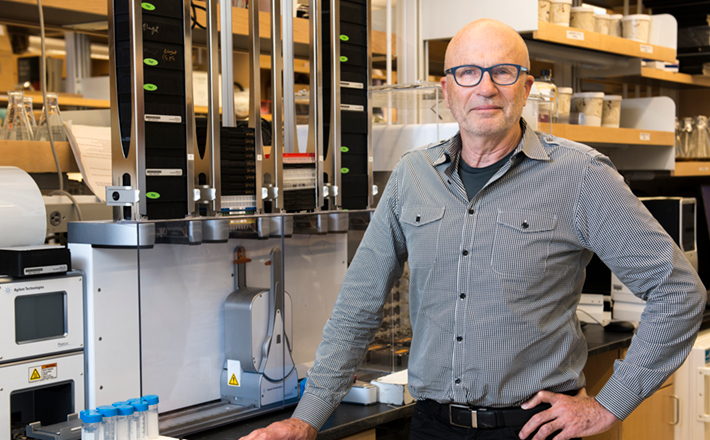
Clifford Woolf, MB, BCh, PhD
Director, F.M. Kirby Neurobiology Center, Boston Children’s Hospital
Professor of Neurobiology and Neurology, Harvard Medical School
Blackfan Diamond Chair in Neuroscience Research, Boston Children’s Hospital
The Woolf lab studies how different forms of neuronal plasticity contribute both to adaptive and maladaptive changes in the mammalian nervous system, particularly in relation to pain, regeneration and neurodegenerative diseases. We have established functional and comparative genomic strategies using expression profiling, bioinformatics and gain- and loss-of-function approaches, to screen for novel genes that contribute to neuronal plasticity and disease phenotypes. Our group works closely with many academic groups, including the Harvard Stem Cell Institute, the Broad Institute and the pharmaceutical industry.
Kirby Core Staff Links
L Barrett | M Bhaumik | E Buttermore | C Chen | C Chien | H Cramer | N Hodgson | N Makhortova | D Whye | Y Zhang
Kirby Faculty
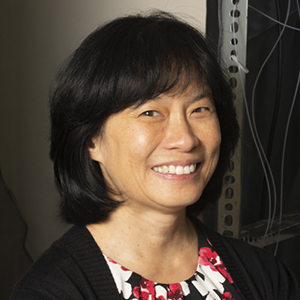
Chinfei Chen, MD, PhD
Our lab seeks to understand the mechanisms that underlie synaptic plasticity in the young and mature mammalian central nervous system. Our studies have focused on the thalamus, a brain region that regulates consciousness, sleep, alertness and the integration of sensory information. One area of deep interest is the establishment and optimization of thalamic circuits during development in this region. We have found that thalamic circuits exhibit robust changes in network connectivity over development that shapes the nature of the information transmitted. Our research may have significant implications for our understanding of neurodevelopmental disorders such as autism spectrum disorders, intellectual disabilities, epilepsy and neuropsychiatric disorders.
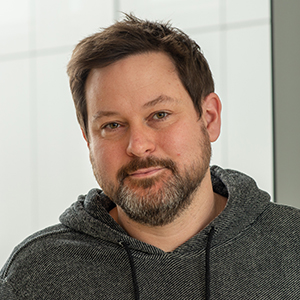
Michael Crickmore, PhD
The Crickmore lab uses mating drive in male fruit flies to study how motivations are produced by the brain. The lab applies neurogenetic and imaging tools to understand the molecular and circuit mechanisms by which dopamine output is calibrated to internal states and is used to motivate appropriate behavior. Dopamine dysregulation is implicated in ADHD, depression, schizophrenia, and addiction so we have reason to be optimistic that this work will fuel new hypotheses for researchers studying these disorders.
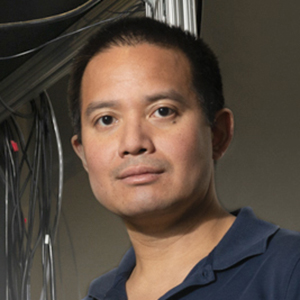
Michael Do, PhD
We ask how light drives functions that are as diverse as visual perception, sleep regulation, hormonal control, and setting of the internal body clock. Our research spans organizational levels and time scales, from molecules to circuits and from milliseconds to hours. It centers on electrophysiological and optical techniques that are applied in vitro and in vivo.
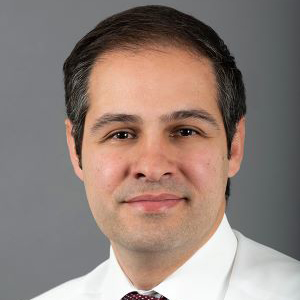
Darius Ebrahimi-Fakhari, MD, PhD
Attending, Neurologist, Boston Children’s Hospital
Assistant Professor, Harvard Medical School
Our team is committed to unraveling the molecular underpinnings of genetic childhood-onset movement disorders. By doing so, we strive to pave the way for the development of novel therapies, encompassing both small molecules and gene-based approaches. Our ultimate goal is to improve the lives of children affected by neurogenetic disorders through the development of innovative and effective therapies.
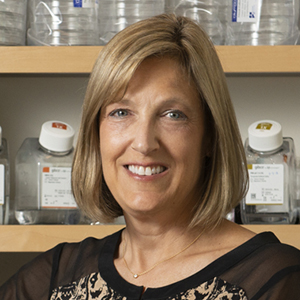
Elizabeth Engle, MD
Investigator, Howard Hughes Medical Institute
We have found that the developmental anatomy of human cranial motor neurons, which originate in the brainstem and send axons to innervate the cranial muscles, is stereotypical, tractable, and conserved in model organisms, thus providing a beautiful paradigm for more complex neurodevelopmental processes. We study aberrant cranial motor neuron development by identifying human congenital disorders of eye and face movement, defining their genetic etiologies, and uncovering their molecular pathways and disease mechanisms. We also study normal cranial motor neuron development in mouse and zebrafish.
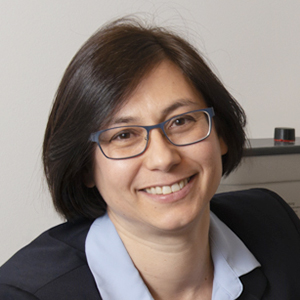
Michela Fagiolini, PhD
Our work focuses in understanding how the brain develops and adapts to the external environment in health and disorders. We study the mechanisms underlying fundamental processes and how they may be altered in autism related disorders, Rett Syndrome and CDKL5 disorder in particular. We aim to identify new target treatments by combining molecular techniques with electrophysiological, two-photon imaging and behavioral analysis of systems level phenomena in vivo and parallel with translational studies in patients.
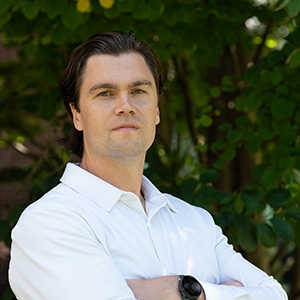
Jordan Farrell, PhD
We seek to understand the mechanisms by which heterogenous cell types orchestrate synchronous network patterns for brain computations as fundamental as memory, which may be key to understanding the origins of pathological hypersynchrony in epilepsy. Using cutting-edge in vivo approaches to home in on these mechanisms with precision, our goal is to restore circuit function with minimal side effects. As a step towards translation, we are developing new tools to uncover mechanisms of ultrasound neuromodulation and use parameter-optimized stimulation patterns to achieve cell type-specificity, but without the need for surgery or genetic manipulations.

Brielle Ferguson, PhD
The Ferguson lab will work to discover and characterize biomarkers of successful and dysfunctional cognitive function by monitoring and manipulating relevant circuits using Calcium imaging, optogenetics, pharmacogenetics, various slice and in vivo electrophysiology approaches, and behavior. We’ll examine these biomarkers in mice with mutations linked to autism-spectrum disorders, schizophrenia, and epilepsy to highlight shared signatures of cognitive dysfunction. We are particularly interested in the role of interneurons in regulating neuronal ensembles critical for completing various cognitive tasks. A long-term goal is to identify therapeutic targets for treating patient populations across disease contexts with treatment-resistant cognitive impairments.
Full Profile > | Ferguson Lab (Website Coming Soon) >
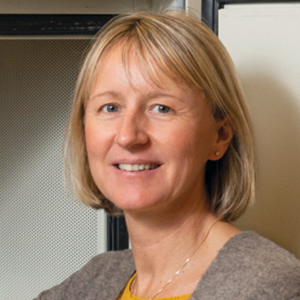
Gwenaelle Géléoc, PhD
The primary goal of our research is to characterize the functional and molecular development of inner ear hair cells. We are applying our knowledge and expertise to study gene mutations that cause Usher Syndrome, the most common form of combined deafness and blindness.
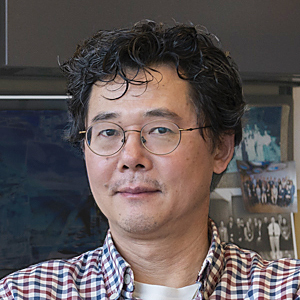
Xi He, PhD
My lab seeks to understand the molecular basis of cell-to-cell communication, and how this communication regulates embryonic and neural development in vertebrates. We are also interested in learning how defective regulation of cell communication causes human cancers and diseases. We aim to identify molecular components of Wnt signaling pathways and the mechanisms by which Wnt pathways are activated and governed during embryonic development and human tumorigenesis.
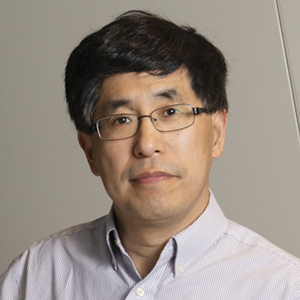
Zhigang He, PhD, BM
Our recent studies have led to the development of novel and effective genetic methods (deletion of PTEN and/or SOCS3) for re-activating neuronal regenerative capacity and thereby allowing for robust regenerative growth after injury, representing a major achievement in the first step of neural repair. Our ongoing studies are focusing on three questions: (1) How to further increase axon regeneration after injury? (2) How to activate spared yet dormant connections in incomplete injury models? (3) What are the physiological functions of different brain-derived descending projections to the spinal cord?
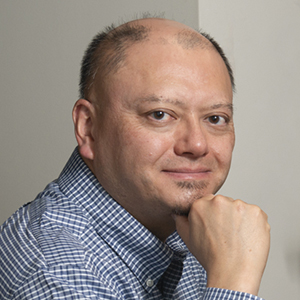
Takao Hensch, PhD
Professor of Neurology, Harvard Medical School
Our lab examines how early life experience shapes brain function, by examining the cellular and molecular factors controlling ‘critical periods’ or ‘sensitive periods’ in brain development. Integrating molecular, cellular and systems neuroscience, we have revealed that these periods are themselves plastic and reversible. Specific, inhibitory (GABA) circuits determine their onset timing, and “brake”-like factors ultimately consolidate this potent rewiring process. Translational research at Boston Children’s Hospital inspired by our work targets recovery from neurodevelopmental disorders, such as amblyopia, epilepsy and autism spectrum disorders.

Jeffrey Holt, PhD
We have an active research group focused on the function, dysfunction and restoration of the auditory system. Our goal is to understand how stimuli from the external world, such as sound, gravity and head movements are converted into electrical signals, how the information is encoded and how it is transmitted to the brain. We want to understand why genetic mutations cause hearing loss and vestibular dysfunction. We are using this information to design novel therapeutic innervations to treat deafness and balance disorders.
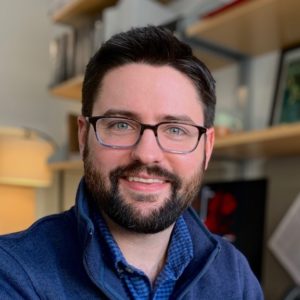
Karl Koehler, PhD
Our lab aims to understand how complex sensory systems form and begin functioning in the developing human body. Our goal is to use this knowledge to design new cell- or gene-based therapies for sensory disorders. Recently, we established some of the first human organ-in-a-dish models of the inner ear and skin, which accurately mimic development of specialized epithelia cells, sensory nerves, and hair follicles, among other tissue types. We use a variety of techniques to investigate these models, including gene editing, single-cell genomics, and functional imaging.
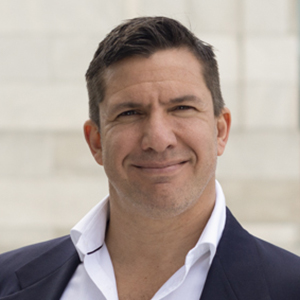
Gabriel Kreiman, PhD
Our lab focuses on elucidating the neural circuits and computational mechanisms underlying visual intelligence. The lab combines invasive neurophysiological recordings in the human brain, behavioral experiments and computational modeling to understand the neuronal circuits, algorithms and computations performed by the visual system. Examples of recent investigations include deciphering the algorithms to make inferences from partial information (pattern completion), transformation-invariant mechanism for visual recognition

Wei-Chung Allen Lee, PhD
Our work is aimed at understanding the organizational principles that underlie information processing in neural circuits through the application of ‘functional connectomics’ to discover the relationship between circuit structure and function in the Drosophila and rodent brain.
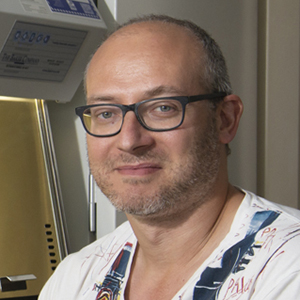
Jonathan Lipton, MD, PhD
Our lab seeks to understand the fundamental relationships between the circadian clock and diseases of the developing brain. We have demonstrated that the circadian clock is disrupted in neurodevelopmental disorders, reflecting the central connection between them and the circadian clock. We seek to define the mechanisms by which circadian information is reorganized or disorganized in animal models of neurological disease and in patient-derived samples.
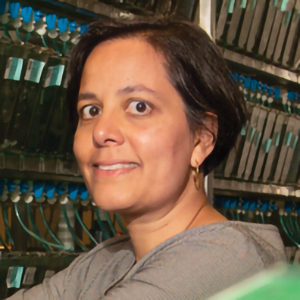
Annapurna Poduri, MD, MPH
Director, Epilepsy Genetics Program, Department of Neurology, Boston Children’s Hospital
Professor of Neurology, Harvard Medical School
Our lab, working with the Epilepsy Genetics Program, performs translational research focused on genetic epilepsies from both a human genetics and a functional modeling perspective. We also partner with the Rosamund Stone Zander Translational Neuroscience Center, Harvard Stem Cell Institute, and Woolf Lab to conduct studies of neurons derived from patient cell lines.
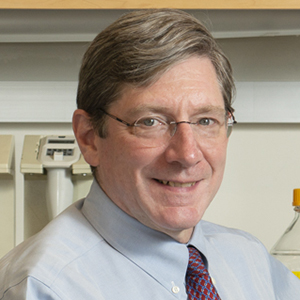
Scott Pomeroy, MD, PhD
Neurologist-in-Chief, Chairman, Department of Neurology, Boston Children’s Hospital
My lab is focused on discovering the normal cells in the developing brain from which medulloblastomas arise, and the molecular mechanisms giving rise to this cancer. We aim to develop more effective and less toxic targeted therapies.
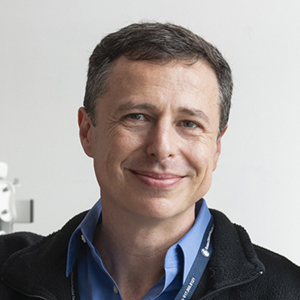
Alexander Rotenberg, MD, PhD
Director, Epilepsy Monitoring Unit, and Director, Neuromodulation Program, Boston Children’s Hospital
We work to identify biological targets which can stop or prevent seizures if manipulated by either brain stimulation or by novel drugs. We are also studying the molecular changes associated with TBI in rats, as well as testing novel approaches to prevent brain injury and seizures after TBI. In parallel, we have ongoing clinical projects aimed to further develop techniques for noninvasive brain stimulation, particularly TMS and tDCS, as diagnostic and therapeutic tools in child neurology.
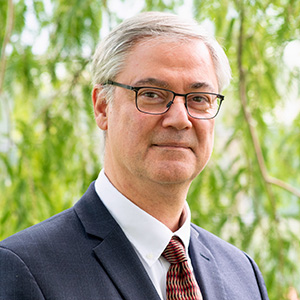
Mustafa Sahin, MD, PhD
Director, Rosamund Stone Zander Translational Neuroscience Center, and Director, Translational Research Program, Boston Children’s Hospital
Our research is directed at understanding the cellular mechanisms underlying childhood neurogenetic disorders. We have predominantly focused on Tuberous Sclerosis Complex (TSC), a genetic disorder that presents often with epilepsy and autism. We are also involved in clinical and pre-clinical work through the Rosamund Stone Zander Translational Neuroscience Center at Boston Children’s Hospital for patients with PTEN Hamartoma Syndrome, Rett Syndrome, Tuberous Sclerosis Complex and Phelan-McDermid Syndrome.
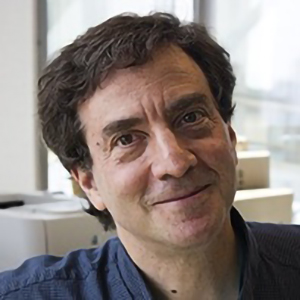
Thomas Schwarz, PhD
Our lab is focused on the cell biology of the neuron and seeks to understand how nerve cells work and keep their distant parts well-supplied and healthy. We do so with the expectation that understanding how the cell functions can give us insight into the pathology of neurological disorders when those functions fail. We work with Drosophila melanogaster, mice, rats, and human cell lines as the scientific question demands. We approach each question through a combination of genetics, biochemistry, electrophysiology, cell biology, pharmacology, and imaging.
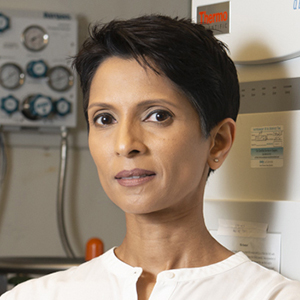
Judith A. J. Steen, PhD
Our lab applies systems biology approaches to understand neuro-regeneration and neurodegeneration. We develop novel qualitative and quantitative workflows at the interface of proteomics and transcriptomics to collect large data sets that are then mined using both available software and in house developed tools. The goal of this research is to use molecular information provided by our quantitative proteomics measurements to ameliorate neurodegeneration and promote regeneration. We are currently applying our analytical and computational workflows to Alzheimer’s Disease, Frontotemporal Dementia, Spinal Muscular Atrophy and Parkinson’s Disease.

Beth Stevens, PhD
Investigator, Howard Hughes Medical Institute
A major goal of our lab is to elucidate the cellular and molecular mechanisms underlying activity-dependent synapse elimination during health and disease, with emphasis on the role of microglia and immune molecules in this process. Using the visual system as our primary model system, we employ a combination of live imaging, molecular, biochemical and neuroanatomical approaches. Current research questions include: How are CNS synapses selectively targeted for elimination? Is complement-dependent synapse elimination an activity-dependent process? What is the role of astrocytes and microglia in synapse development and elimination?

Xin Tang, PhD
Our lab seeks to understand the molecular and cellular basis of human brain disorders in order to ultimately develop mechanism-guided therapeutics that relieve disease symptoms. With a research focus on neurodevelopmental disorders, epilepsy, and brain cancer, we create physiologically-relevant models to elucidate disease mechanisms and develop drug and gene discovery platforms to screen for potential therapeutics that can regulate the expression levels of disease risk genes. In order to develop novel precision medicine, we employ a multidisciplinary approach that leverages technologies spanning genome engineering, human stem cell differentiation, organoid culture, single cell-omics, bioinformatics, biochemistry, electrophysiology, and high-throughput gene/drug screening.
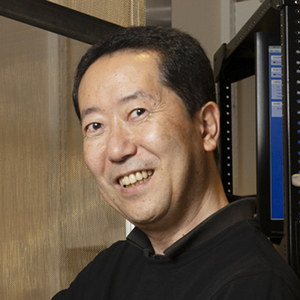
Hisashi Umemori, MD, PhD
Our lab is interested in the molecules and mechanisms by which specific and functional synaptic connections are established in the brain, and is applying the findings to the prevention and treatment of neurological/psychiatric disorders. We use molecular & cellular biological, mouse genetics, biochemical, histological, physiological, behavioral, and imaging techniques. Through our work, we aim to understand the principle of mammalian brain wiring and how the functional brain is built. Our discoveries will be applied to the prevention or treatment of neurological and psychiatric disorders associated with abnormal synapse formation, such as autism, schizophrenia, and epilepsy.
Affiliated Faculty
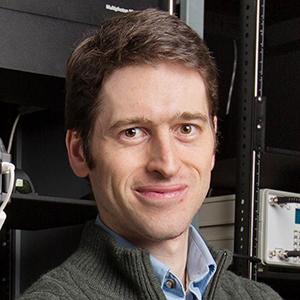
Mark Andermann, PhD
Our lab studies how the needs of the body determine which sensory cues are attended to, learned, and remembered. We investigate how natural and experimentally induced states of hunger modulate neural representations of food cues—and the resulting consequences for obesity, binge eating and other eating disorders. Using two-photon calcium imaging and multi-electrode recording in behaving mice, we are investigating the mechanisms by which genetically, anatomically and chemically defined classes of cortical neurons facilitate cue-induced feeding in a hunger-dependent manner.
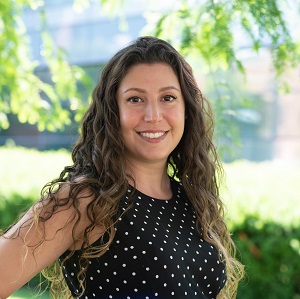
Mandana Arbab, PhD
Many neurodegenerative diseases are caused by known genetic mutations, but how these genetic abnormalities cause pathology is often poorly understood. Genome editing may provide a lasting treatment for many genetic disorders by correcting disease mutations or making compensatory changes to the genome. We use genome editing tools to investigate cellular mechanisms of neurodegeneration to study the impact of genetic mutations in cell and animal models of neurological diseases, and to develop genome editing therapeutic strategies that may one day treat neurological diseases in patients.
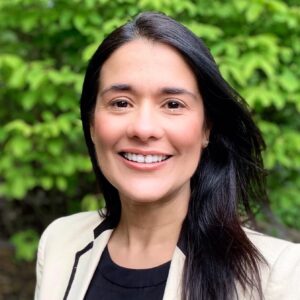
Maya Chopra, MBBS, FRACP
Director, Translational Genomic Medicine Core, Rosamund Stone Zander Translational Neuroscience Center, Boston Children’s Hospital
Dr Chopra’s research interest is in rare syndromic causes of neurodevelopmental presentations. She is interested in the systematic evaluation of such disorders for suitability for multidisciplinary clinics, clinical trial readiness and gene-based therapies. She collaborates closely with local and external investigators in research efforts to understand the mechanisms underpinning neurodevelopmental syndromes, and how they can translate into treatment options.
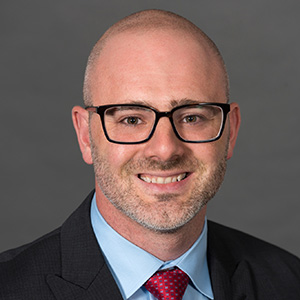
Eric Gaier, MD, PhD
Amblyopia (“lazy eye”) is a neurodevelopmental disorder accounting for visual impairment among a significant number of children and adults. Current standards in therapy target occlusion (patching) or penalization (cycloplegia) of the better-seeing eye, but these therapies carry major limitations in efficacy and adherence. Our lab conducts basic science research related to amblyopia using a mouse model. By elucidating and leveraging the mechanisms that underlie visual, experience-dependent synaptic changes in the brain, our research efforts are aimed at advancing our understanding of and developing new strategies to treat amblyopia.

David Glahn, PhD
Director, Tommy Fuss Center for Neuropsychiatric Disease Research
What are the mechanisms that cause developmental pathways to diverge, leading some children and adolescents to pathological disorders and others to healthy outcomes? Through a multifaceted program that integrates psychiatry, neuroscience, genetics, stem cell science, bioinformatics, and brain imaging, our aim is to unlock the genetics and biology of psychiatric disease, with a focus on early detection, prevention, and intervention to protect and treat the most vulnerable community of children and young adults.
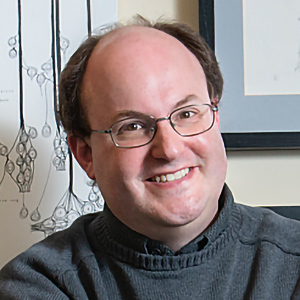
Maxwell Heiman, PhD
The goal of our lab is to understand how cells get their shapes and assemble into organs. Defects in this process lead to structural birth defects. We are using forward genetic approaches in C. elegans to identify the genes that give individual cells their characteristic shapes and that specify defined cell-cell contacts.
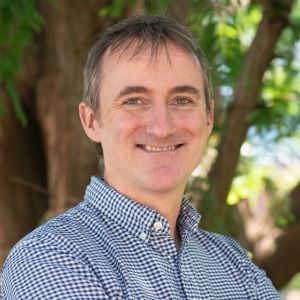
Jed Hubbs, PhD
Director, Medicinal Chemistry, Rosamund Stone Zander Translational Neuroscience Center, Boston Children’s Hospital
We seek to deliver new small molecule therapeutics to patients with neurodevelopmental and neurodegenerative disorders. Advances in disease genomics, patient-derived neuron cell culture, and gene editing are opening new avenues to screen drugs for their ability to correct a disease state. Once a molecule has been identified, we can use it to launch a drug discovery program and elucidate new therapeutic mechanisms.

Dong (a.k.a. Don) Kong, PhD
The long-term interest of our laboratory is to bridge molecular, cellular, and system approaches to understand the neuronal modulation and circuitry involved in the pathogenesis of neurological diseases. Specifically, we are leveraging and combining a cornucopia of cutting-edge technologies, from genetically engineered mouse models, recombinant viral vectors and viral tracing system, optogenetic and pharmacogenetic approaches, patch-clamp electrophysiology, calcium imaging, to 2-photon laser scanning microscopy and 2-photon laser uncaging methods (2PLSM/2PLU), to explore the molecular and circuit mechanisms underlying feeding related behaviors and metabolic homeostasis.
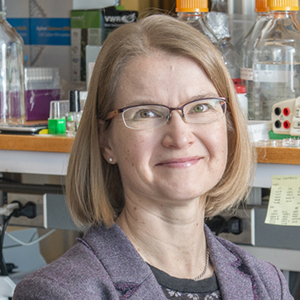
Maria K. Lehtinen, PhD
Hannah C. Kinney, MD, Professor of Pediatric Pathology Research, Boston Children’s Hospital
We study cerebrospinal fluid-based signaling during brain development and disease and the fundamental mechanisms that regulate the development and maintenance of the mammalian brain.
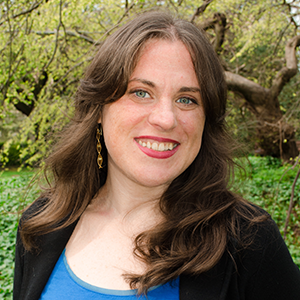
Emily Osterweil, PhD
Member of the Faculty in Neurology, Harvard Medical School
Our research seeks to understand how protein synthesis at the synapse is used to facilitate experience-dependent changes in brain function. Advances in technology have led to an increasingly complex picture of the RNA landscape of the neuron. Specific mechanisms of splicing, transport and translation have been identified that allow activity driven changes to persist at synapses. We are using new tools in RNA sequencing, proteomics and imaging to understand how specific neuron populations encode information through changes in the RNA and protein environment. Our goal is to gain a better understanding of experience dependent learning, and discover how dysregulation of translation causes pathology in neurodevelopmental disorders such as Fragile X Syndrome (FXS).
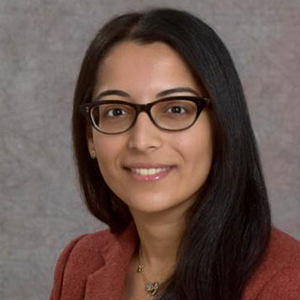
Meenakshi Rao, MD, PhD
Attending Physician, Division of Gastroenterology, Hepatology and Nutrition, Boston Children’s Hospital
Our lab is working to understand how the neurons and glial cells of the enteric nervous system (ENS) detect and use information about nutrients, microbes, and mechanical stimuli to regulate gastrointestinal, metabolic and immune responses. We use mouse genetic models, in vivo and in vitro assays to investigate ENS circuits and their role in the gut-brain axis. The overall goal of our work is to determine how ENS dysfunction contributes to digestive and neurological disorders.
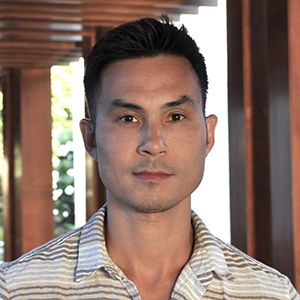
Marcos Simoes-Costas, PhD
Associate Professor of Systems Biology, Harvard Medical School
Genome regulation in embryonic development
In the Simoes-Costa Lab, we study how cellular diversity arises during vertebrate embryonic development. We employ systems-level approaches to decode the molecular programs that drive changes in cell identity. Our research group is particularly interested in how gene regulatory networks operate in space to give rise to complex arrangement of cells.
Our model of choice is the neural crest, a stem cell population that plays a crucial role in the genesis of the vertebrate body plan. Neural crest cells emerge from the central nervous system to give rise to intricate structures like the craniofacial skeleton and the peripheral ganglia. They have served as an essential developmental model system due to their motility and ability to form various cell types. We approach the neural crest as a system for integrative biology, surveying how multiple layers of regulation work together to control cell identity and behavior.
Full Profile > | Simoes-Costa Lab >
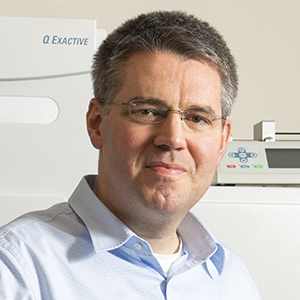
Hanno Steen, PhD
Director of the Proteomics Center, Boston Children’s Hospital
Dr. Steen’s lab is working on novel methods for identifying and quantifying various protein modifications that are involved in pediatric diseases in order to provide new insights into the underlying biological processes, a prerequisite for a rational approach to prevent and/or cure these diseases.
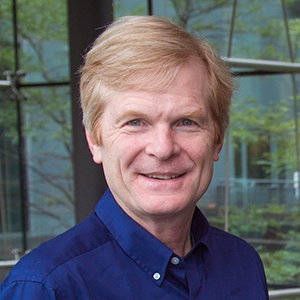
Christopher A. Walsh, MD, PhD
Chief, Division of Genetics and Genomics, Boston Children’s Hospital
Investigator, Howard Hughes Medical Institute
Our lab is interested in identifying mutations in the mechanisms that regulate the normal development and function of the human cerebral cortex. Such mutations cause crippling consequences such as epilepsy, autism, and mental retardation or other learning disorders. Recent interests of the lab include identifying somatic mutations in the human brain as a cause of some forms of autism and epilepsy. In addition, we are using the human genetics of neurological disease to identify those portions of the genome that are most critical for the evolution of the Human Brain in the recently formed Allen Discovery Center for Human Brain Evolution.

Mary C. Whitman, MD, PhD
Assistant Professor of Ophthalmology, Boston Children’s Hospital
Molecular Mechanisms of Oculomotor Development and Genetics of Strabismus
We are investigating the development of the nerves and muscles which control eye movements, in both normal development and in eye movement disorders, including nystagmus and strabismus. We are also searching for genetic causes of strabismus and exploring how genetic changes associated with strabismus alter development of the oculomotor system.
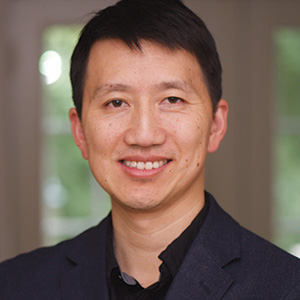
Timothy Yu, MD, PhD
Attending Physician, Division of Genetics and Genomics, Boston Children’s Hospital
Our lab conducts genome-wide and world-wide searches to find the genes that are responsible for autism spectrum disorders (ASDs) and other neurodevelopmental conditions. We are passionate about finding ways to bring genomic tools to the bedside to help care for patients with genetic disorders. These projects range from the deployment of genome sequencing in the neonatal intensive care unit to the design and delivery of genome-guided therapeutics for sick children.
Kirby Administration
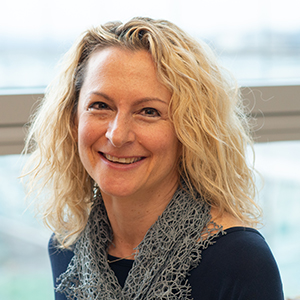
Amy Weinberg
Amy is responsible for the overall administration of research in Neurobiology, Neurology, and Otolaryngology. She handles space allocations, legal agreements, basic and clinical research administration, promotions and merit increases, employee relations issues, sets policies and procedures, and manages the research administrative team within the three areas listed above.
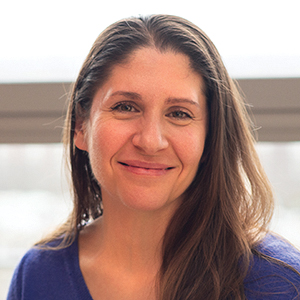
Karen Caballero
Karen is responsible for onboarding all employees and associated personnel, from posting a job to securing a visa to getting cleared to begin work to processing BCH and Harvard appointments. She manages access to the server (OAR forms), website content updates, and marketing initiatives. She oversees educational and other events put on in the Kirby Center, and maintains our distribution lists.
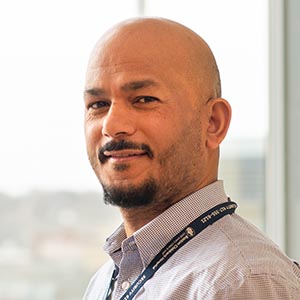
Padam Gharti
Padam manages pre- and post-award activities for faculty and fellows on the 13th and 14th floors of the CLS building, as well as for faculty conducting clinical research for the Department of Neurology. Padam devised and administers our filemaker database, completes effort reports for his assigned staff, and supervises Kathy Rodrigues and Dipendra Subedi.

Bronwen Beaudoin
Bronwen Beaudoin supports Dr. Beth Stevens with the development of grant proposals, progress reports and key academic documents. She manages research and fellowship resources, reimbursements and special projects for the Stevens lab.
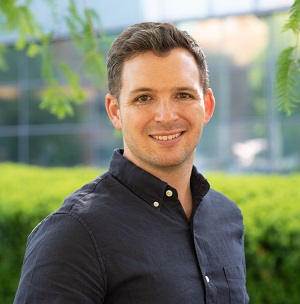
Jordan Bessette, PhD
Jordan provides administrative support to Dr. Tom Schwarz and the T32 Fellowship program. He also coordinates EDI efforts for the Kirby Center.

Marie Boyle
Marie provides research administrative support to Dr. Mustafa Sahin and his team, as well as to the Rosamund Stone Zander Translational Neuroscience Center. She also handles billing for the ADSF and Human Neuron Cores and populates effort reports for staff in her assigned labs.

Tammy Chu
Administrative Coordinator, Engle Lab
Tammy is responsible for mandatory reporting (e.g. departmental / institutional reports and website updates, institutional grants, and sponsor progress reports), staffing (e.g. recruitment, on/off boarding, and visas), and MTA/contract execution for the Engle lab. In addition, she assists with grant applications and letters of support.

SJ Cunningham
SJ provides executive administrative support to Dr. Clifford Woolf and his lab, including pre-award grant support. SJ also serves as a member of the research administration team and is responsible for generating the quarterly Kirby newsletter, scheduling the faculty lunch series, planning and executing Kirby-wide events, assisting other faculty with grant submissions, managing the departmental End Note library, and aiding Kirby fellows with their faculty job searches along with Dr. Mike Do.
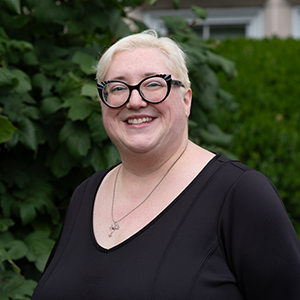
CJ Johnson
CJ is the executive assistant to Dr. Mustafa Sahin and his lab, as well as providing administrative assistance to the Rosamund Stone Zander Translational Neuroscience Center and arranging the RSZ TNC Monthly Seminars.
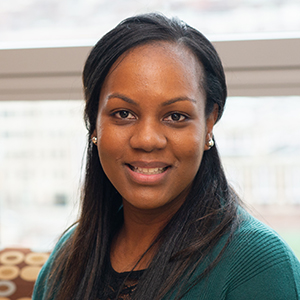
Kathy Rodrigues
In addition to providing both pre- and post-award grant support to Drs. Judith Steen and Ann Poduri, Kathy assists fellows and some faculty on CLS 13 and 14 with their grant submissions. She also provides post-award support for faculty in the Department of Neurology.

Katie Rogers
Program Coordinator II
Katie helps in the planning and execution of the Neurobiology Seminar Series and Lab Results Talks for the Kirby Center. She helps with general administrative tasks for the Kirby as well as social media and website updates.

Robin Scott
Robin manages pre- and post-award activities for faculty and fellows conducting clinical research for the Department of Neurology.
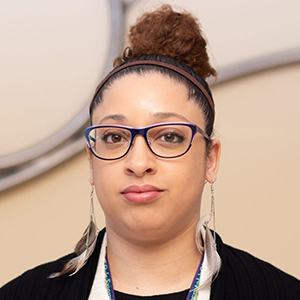
Sable Smith
Sable provides pre- and post- award grant support for the Rosamund Stone Zander Translational Neuroscience Center and Otolaryngology, and assists some Neurobiology investigators as well.
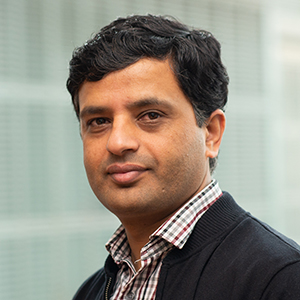
Dipendra Subedi
Dipendra handles Accounts Payable for our labs including submission of reimbursements for faculty, payment of invoices, and follow-up on unpaid invoices. Dipendra processes core facility billing for our Imaging, Neurobehavioral, Gene Manipulation, and Viral Cores. He ensures vendors are set up in PeopleSoft and orders supplies for our core facilities and clinical research labs outside of CLS. Dipendra handles enrollment-based billing for Neurology.

Becky Thorne
Becky is the Executive Assistant to Dr. Beth Stevens. She is responsible for the management of Dr. Steven’s calendar, coordinating travel and processing reimbursements. Becky also plans and executes Stevens Lab events, organizes special projects and provides overall administrative support for the lab.
Core Staff
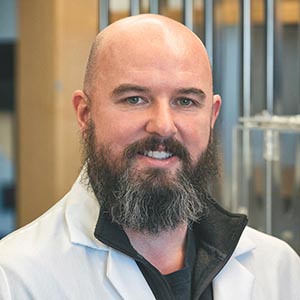
Lee Barrett, PhD, ARCS
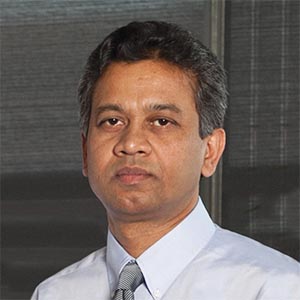

Elizabeth Buttermore, PhD


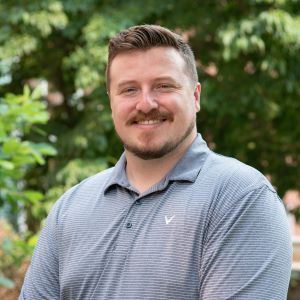

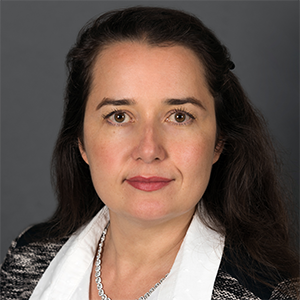
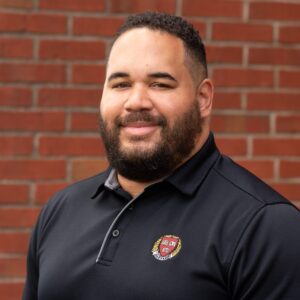
Credits: Most of these faculty head shots were taken by photographer Anna Olivella or Celia Muto, and used with permission from the Harvard Brain Science Initiative.


